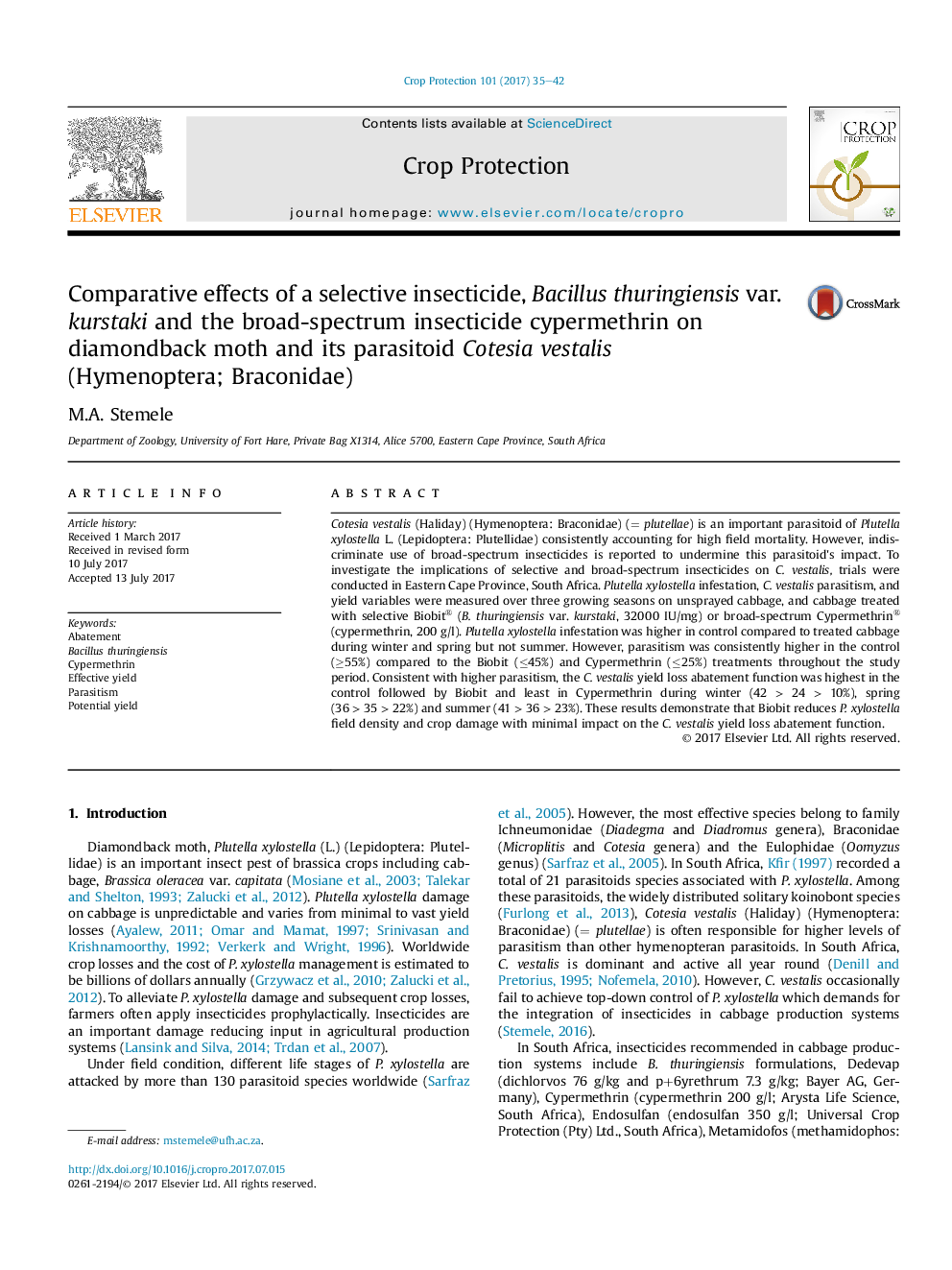| Article ID | Journal | Published Year | Pages | File Type |
|---|---|---|---|---|
| 5760788 | Crop Protection | 2017 | 8 Pages |
Abstract
Cotesia vestalis (Haliday) (Hymenoptera: Braconidae) (= plutellae) is an important parasitoid of Plutella xylostella L. (Lepidoptera: Plutellidae) consistently accounting for high field mortality. However, indiscriminate use of broad-spectrum insecticides is reported to undermine this parasitoid's impact. To investigate the implications of selective and broad-spectrum insecticides on C. vestalis, trials were conducted in Eastern Cape Province, South Africa. Plutella xylostella infestation, C. vestalis parasitism, and yield variables were measured over three growing seasons on unsprayed cabbage, and cabbage treated with selective Biobit® (B. thuringiensis var. kurstaki, 32000 IU/mg) or broad-spectrum Cypermethrin® (cypermethrin, 200 g/l). Plutella xylostella infestation was higher in control compared to treated cabbage during winter and spring but not summer. However, parasitism was consistently higher in the control (â¥55%) compared to the Biobit (â¤45%) and Cypermethrin (â¤25%) treatments throughout the study period. Consistent with higher parasitism, the C. vestalis yield loss abatement function was highest in the control followed by Biobit and least in Cypermethrin during winter (42 > 24 > 10%), spring (36 > 35 > 22%) and summer (41 > 36 > 23%). These results demonstrate that Biobit reduces P. xylostella field density and crop damage with minimal impact on the C. vestalis yield loss abatement function.
Related Topics
Life Sciences
Agricultural and Biological Sciences
Agronomy and Crop Science
Authors
M.A. Stemele,
